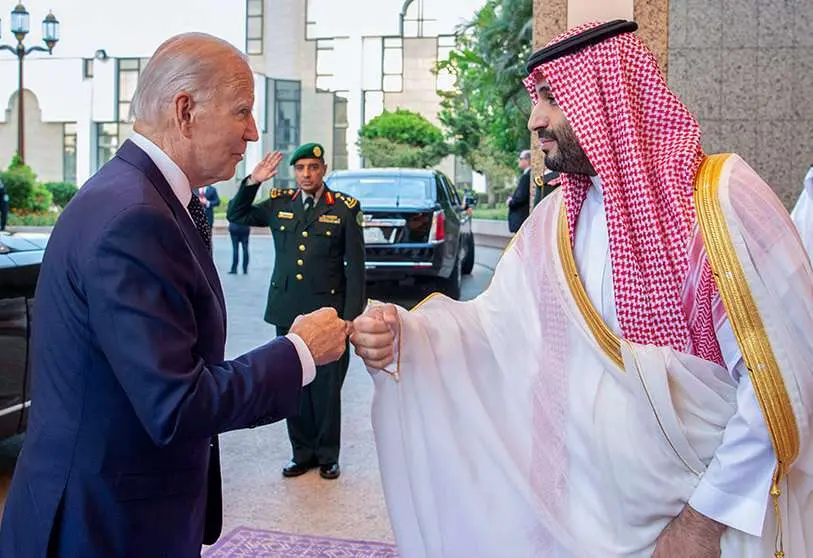Saudi Arabia's oil

US President Joe Biden is trying to rebuild and recover his position in the Middle East with his visit to Israel, the West Bank and Saudi Arabia, where he also took part in a meeting of the Gulf Cooperation Council (GCC) that allowed him to meet with other Arab leaders. Regaining lost confidence in this mesh of interests will not be easy, and a few aid programmes will not be enough, although they certainly not only help, but are a precondition for reopening the door.
America's energy self-sufficiency thanks to fracking for some years now and the economic problems aggravated by the wars in Afghanistan and Iraq prompted Washington to shift its attention to the Indo-Pacific, to Southeast Asia, where the axis of the world economy had shifted, with China as the main adversary for hegemony. A struggle in the economic and commercial spheres, and above all in the digital and telecommunications technology sphere. At stake is 5G and already 6G, which means having control and the initiative. In recent times also in the military sphere, where China has significantly increased its budget. And the complexity of a convulsive world is further complicated by the confrontation with Russia after its invasion of Ukraine. The new Cold War has set off all the alarm bells and disrupted many relations, forcing many countries in Latin America, Africa and Asia, where Russia has been cultivating relations in all sectors, to take sides or remain on the sidelines.
In Israel, Biden has certified US support for its security, at a time of essential change following the signing of the Abraham Accords between the Emirates, Bahrain, Morocco, Sudan and the former enemy. The Arab-Israeli understanding in the face of Iran's Shia radicals represents a new era in the region. And it is completed by the visit to the Palestinian National Authority with a US aid programme worth 315 million dollars. The great unresolved conflict remains, among other issues, over Iranian support for Hamas in Gaza, which keeps Palestinians divided.
We will have to wait and see if Joe Biden has managed to bring his two great allies in the region closer together to act against Iran. Saudi Arabia now allows Israel to fly over its airspace, but its spokesman says it will go no further. For the time being. Media attention focused on the fist bump with the crown prince and the country's real strongman, Mohammed bin Salman, who is already recognised for the significant steps taken towards modernising society, multilateral relations and the key role he plays in the oil world now that markets need more production to balance the sanctions on Russia. Bin Salman only conceded to slightly increase production capacity to 13 million barrels per day. We will see if he actually increases production and defends it at the next OPEC summit.

